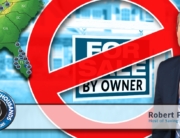How to Determine the Value of Your Home
It seems every endeavor for consumer knowledge today begins online. This appears to be especially true for homeowners trying to find the value of their home.
Having worked in the real estate world his entire career, helping consumers and real estate agents alike, Robert Palmer understands why homeowners would gravitate toward easily accessible resources such as online home valuations.
“A lot of people are concerned about what their home is worth,” Palmer said. “It’s a big part of day-to-day life. It’s probably the largest asset most people own, and especially in a down economy, there’s always this fear that our assets are going to lose their value. It’s kind of like that feeling you get when you’re upside down and can’t move. You feel like you’re trapped. So home values are a big deal to all of us.”
With so many websites offering computer-generated home valuations, consumers are continuously bombarded with access to this information.
This begs the question, should we trust computer-generated home valuations?
As the acclaimed host of the nationally syndicated Saving Thousands radio show, Palmer has spent his entire professional career educating, informing, and empowering consumers, helping them fight back against big business and regain control of their financial lives.
We sat down with Palmer and asked his thoughts on online home valuations, and where consumers should go to find an accurate estimate of their home’s value.
Q: What’s your opinion of online home valuations?
Palmer: There are Internet companies that give people instant, what they call “home estimates” or “home valuations.” These are supposed to tell you what your home is worth. Do they work? Well, here’s the idea their valuation is built on: if I ask them to value my home, they’re betting their server farm in California knows what my home in central Florida is worth. I’m calling BS on that! These online estimates, by their own admission, are wrong seemingly two-thirds of the time when it comes to values. They’re ballpark guesses at best, and total shots in the dark at worst.
Most will have a description at the bottom of the site saying, “How accurate is our data in your area?” You can click on it to see your area, and if you look carefully and run some numbers, you’ll notice they’re right only about a third of the time. So even by their own admission, their estimate is pretty inaccurate.
Q: How do these inaccurate estimates affect the consumer?
Palmer: These valuations are pretty harmless by themselves, but the real problem here is that most people use these inaccurate estimates to make decisions about whether or not to sell their home, refinance their home, or buy a home. This is a huge mistake. Their server farm in California—or wherever they are located—doesn’t know about your area’s school districts. It doesn’t know that your side of the street is more desirable than the other side of the street. It doesn’t understand that if a home is backed up to the train tracks, it may have a negative impact on its value. It doesn’t understand that if you’re in a neighborhood with a nice community boat ramp and gate, that’s probably going to increase your home value.
What their servers do is take the average price per square foot for the whole area. That’s it. In some areas, their inaccuracy is dangerously noticeable. Florida, where I’m from, is a great example of how worthless they can be. There are areas in Florida where, if you drive down the street, you’ll see $1 million properties right next to single-wide manufactured homes. We have that kind of transition very quickly, which means that the home valuation servers don’t know what to do. When you do an average price per square foot in an area like that—and you’re comparing manufactured homes and million-dollar homes—it’s just not going to be an accurate representation. Not even close. And if you want to sell or buy or refinance with that estimate, there’s a very good chance you’re going to get ripped off.
Q: So if not online, where should a consumer go to get a true estimate of their home’s value?
Palmer: Who is the best suited, in my opinion, to tell you what your home is worth if you’re thinking about selling your home? That would be a real estate agent. Being in the financial and real estate industries for as long as I have, I see this all the time. There’s a human element that’s required. To help people find out what their homes are worth, you need to talk with a knowledgeable real estate agent in your area. Most real estate agents will do this for you free of charge. They call it a CMA—a Competitive Market Analysis. They’ll look at your home, pull up the comparable sales, and use their expert opinion to give you a number. Local agents are going to be the ones most familiar with your neighborhood, so make sure to talk to them first.
Don’t make a decision about selling your home, or any financial decision regarding your home, before you talk to a local real estate professional. They will give you an accurate home valuation, and they will also discuss with you ways you can increase your home’s value. They’re the ones who will notice all the things affecting your home’s value— gathering and analyzing all the critical information you need to know; if there’s anyone in the world qualified to handle such an important job, it’s them.
Using an agent also means you always have someone who can answer your questions or make recommendations. If you upgrade the countertops, if you redo the flooring—what would help you get the most value out of your investment? Should you do one or the other, or both? During the selling process, do you know how to professionally stage a home? Finding a reputable real estate agent to have in your corner to answer these questions is a great asset. Real estate agents provide home values every day of the week in your market. They live it, breathe it, and negotiate it; they won’t steer you wrong. Bottom line is, if you want to know your home’s true value to make an educated financial decision, make sure your first step is to talk to a professional real estate agent.





